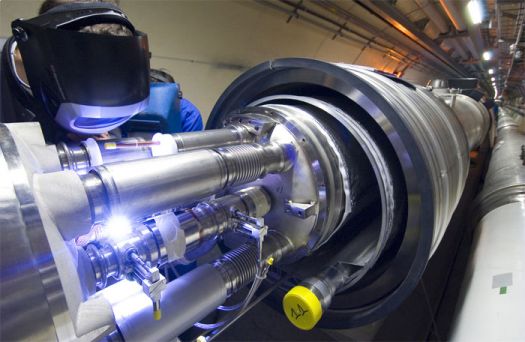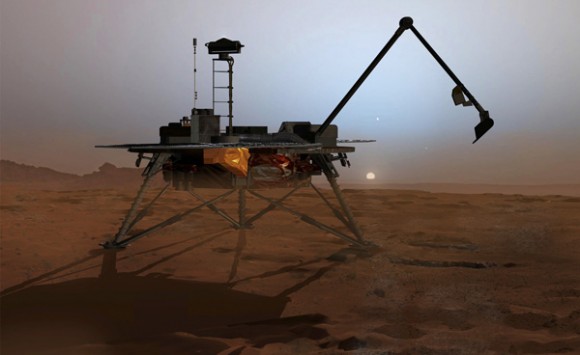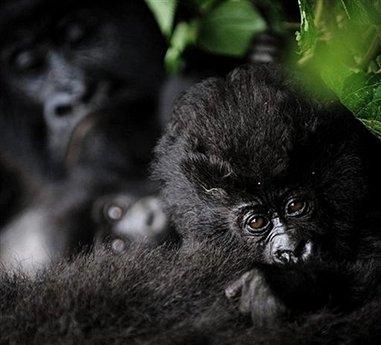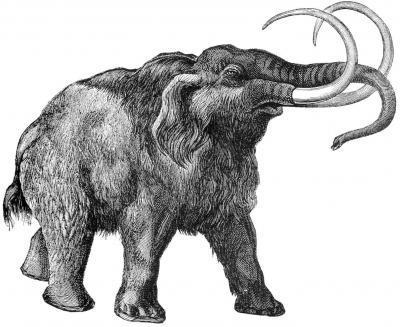The Large Hadron Collider, the Phoenix mission and the creation of an artificial bacterium - among the important scientific news of 2008. NASA also adds Michael Phelps' swimsuit
1. The Large Hadron Collider

Time magazine chose bThe Large Hadron Collider – The particle accelerator at CERN in Geneva for the big scientific discovery of the year, even though it has been shut down after only running for two weeks in an experimental phase. True, it did not destroy the earth, but this fear brought surfers in droves to the site of the scientist in the days surrounding the start of the accelerator's activity.
The surfers of the science site were also particularly interested in the accelerator, as you can see, news related to it occupy the first five places in the number of hits, among the ten most read news on the site in 2008.
In September, the big accelerator was started for the first time, despite concerns that arose in the public due to arguments from people who do not have that much knowledge in the field that it would create a black hole that would suck the entire planet into it. No observer with any knowledge of physics thought this would happen, but the scientists wanted it to work as designed, and it didn't either. A helium leak from one of the cooling pipes caused the accelerator to be shut down less than two weeks after it was started for repairs and now it is hoped that it will be able to be operated starting in June 2009.
2. Phoenix

In second place on Time's list and in a respectable place on several other lists, including the NASA list, part of which is presented below, the Spacecraft Operation Phoenix which was launched on August 4, 2007 and landed on Mars on May 25. This is the first time that a spacecraft has landed in one of the polar regions of Mars, where a large concentration of water and possibly a sign of life should be found.
The Phoenix spacecraft found nothing during its several months of operation that changed the image of Mars as a dead world, but it strengthened the image of the planet as a place where life may have once existed. The spaceship was not designed to survive for too long anyway and in November the cold and darkness forever overwhelmed it.
3. Creation of artificial life
Craig Venter, the man who was behind the decoding of the human genome at the beginning of the decade, worked this year on DNA production of an artificial bacterium. Venter stitched together 582 thousand base pairs needed to invent the genetic information of an entire bacterium. The second step Hunter now wants to take is to program the DNA into a living bacterium to see if it takes command of the organism. He is convinced that this will succeed. And as any programmer can tell you, if you know how to write the code, you can make it do almost anything.
4. The Chinese manned space mission Shenzhou 7
This year, China made its third manned flight, Shenzhen 7 Hers was attended by three astronauts who also performed a successful spacewalk. In addition, China launched an unmanned spacecraft to the moon, changes 1, and it plans to land humans on the moon in 2020.
5. New gorillas

Western lowland gorillas are recovering. A new survey has shown that there are more members of this species than previously thought. The forests and swamps of the northern Republic of the Congo are now considered home to 125 gorillas, double the previous estimates.
But there is no good news without bad news. The war in the Democratic Republic of the Congo, the neighboring country, has also spread to the Virunga National Park, and they are threatening a population of 350 mountain gorillas - about half of the world's population of this species. More on Gorillas.
6. First direct photographs of planets outside the solar system
Since the discovery of the first planets outside the solar system, their population has been growing and diversifying. If at first we were able to discover only the largest and those too close to their sun to allow life, then this time reports of smaller planets are also starting to arrive.

The grief too Watch For the first time in visible light on a planet orbiting another sun. The Hubble Space Telescope took the first visible light image of a planet orbiting another sun. It is estimated that this is a star whose mass is no more than three Jupiter masses. This planet, known as Fomalhaut b, orbits the bright southern star Fomalhaut, which lies 25 light-years from Earth in the southern constellation of Pisces.
7. The cloak of the seer and the unseen
Scientists at Berkeley have developed invisibility cloak. They used nanowires grown inside a porous aluminum tube. In doing so, they created a sheet 10 times thinner than a piece of paper. They proved that a bone can be wrapped in this cloth and the light surrounds the bone and effectively makes it invisible.
8. Decoding the mammoth genome

In November, Prof. Stephen Shuster of Penn State announced that he was able to recover 80% of the genome of woolly mammoth long extinct, using clumps of hair. The decoding encompassed 3 million DNA sequences, during which the researchers made sure to separate genes that came from bacteria and other creatures that were infected with the fur. The chances that we will see a park of woolly mammoths in the foreseeable future are still not high.
9. Ignorance in the sciences
25% of Americans in the US can be considered scientifically literate. That means only one out of four Americans can understand what is written in the science column of the New York Times. It is therefore no wonder that important issues such as global warming and stem cells did not interest the voters at all. Meanwhile in Beijing they achieved a new record in scientific tests. The relative weakness of the USA in the field of science did not go unnoticed by Obama who mentioned her several times in the election campaign.
10. The first family
In the state of Saxony-Anhalt in the east of Germany, the oldest nuclear family was discovered. Archaeologists have uncovered the bodies of family members who died 4,600 years ago, in the Stone Age, who appear to have been killed together in a raid. This conclusion stems from defensive wounds that were on their bodies, including a point where a stone thrown at one of the females hit her fourth vertebra. Among the remains that were discovered - the bones of an elderly man, an elderly woman and two boys, one aged around 8-9 and the other between 4-5. Analysis of DNA segments showed that it was one family. Apparently this is not the oldest family that existed but certainly the oldest that has been discovered.
The most viewed articles on the science website in 2008
- Now it's final: the large particle accelerator is safe to use
- The end of the world will not come in 2012
- Everything you wanted to know about the new particle accelerator in Geneva
- Will Sarn's Large Particle Accelerator Change the Face of Physics?
- Is Earth about to be swallowed by a black hole?
- The celestial trinity - Venus, Jupiter and the Moon came closer
- The mysterious case of two balls that fell from space in Brazil and Australia
- Is our universe controlled by artificial intelligence?
- A new and simple technique for raising people's IQ
- There is no mystery to the Bermuda Triangle

17 תגובות
May God grant that next year we should use science for more civil needs and less for the needs of wars and handling national problems
A wonderful year
A little late, but... Happy New Year to all of us, and may the coming year be equally full of fascinating scientific innovations.
To Avi Blizovsky - a very interesting review.
I really enjoy reading this site every time.
Blessings to you and the other writers. I particularly enjoy Yael Petar and Moshe Nachmani.
Roi Cezana also writes very interesting articles.
Well done. Interesting 🙂
Happy new year to everyone
To little Danny:
Your judgment is a source of pride for me.
If you don't appreciate me there must be something in me!
By the way: Why did you say that Yehuda came up with interesting ideas?
Did I say otherwise?
I was just saying that his ideas were never censored here if only because of the thought that they would find some ignoramuses interested in them.
What is censored is the swearing, swearing and defamation of both of you.
By the way, I have the impression that you are trying to start again, so don't whine when it happens again.
I tend to agree with all those who wrote above me.
Happy New Year everyone,
Who will give and not carry a sword against a nation and the truth will settle between us.
Greetings friends and friends of friends,
Ami Bachar
Michael,
The rabbit doesn't ruminate but you certainly do, with this hollow and demagogic argument. Someone said nonsense - well, so what? And didn't Lord Calvin say that everything is already known and there is nothing left to explore? - So he said, so what?
Yehuda has certainly come up with interesting ideas over the years, Yehuda has certainly provoked a 'brainstorm' here. I do not pretend to judge you, but you judged me and therefore I will respond. In my personal opinion you are not a smart person. You definitely know quite a bit about science (but less than me), but I did not see a deep understanding and a flighty thinking from you - in my opinion Yehuda has plenty of the flight that you lack.
Happy New Year to you and to all the 'Hidan' commenters.
To 7:
Keep believing that the rabbit is ruminating. It is healthy and indicates your great wisdom.
To Judah:
As I wrote to the little brother - there is no truth in your words.
Your words never put any theory to the test, but all your words that referred to some scientific theory were published despite this - even if they expressed unacceptable opinions (in my opinion, quite rightly).
The only things that were censored were your hateful comments (unfortunately, some of these hateful comments were still published and only after the SAH was filled did the censorship begin to act on them)
For the little brother:
I saw the censorship you are talking about and in my opinion it only censored hateful comments from your pen and other pens.
No intelligent, wise or even witty response was censored.
It is possible that the people who wrote these comments are indeed opinionated and intelligent, but it was not the people who were censored or removed, but their venomous and tasteless comments.
Their wisdom was not expressed in these responses.
To 6
Indeed, in our little world, of those who know science, this will be remembered as the year of censorship.
And the truth is, as you said, it removes in advance the desire to respond to comments that are a little outside of the consensus, and perhaps that is the goal of making this a site for those who agree only, contrary to the essence of science, which requires constantly putting theories to the test. What a shame.
Good Day
Sabdarmish Yehuda
But sitting in the sky will play
God will mock him
I will actually remember this year the censorship and blocking on the site, the removal of opinionated and intelligent commenters - a move that reduced instructive and stimulating discussions between commenters on the site. A systematic intervention by my father that began with anti-faith and turned into revenge campaigns on a personal basis. From a website that was thought-provoking and fun - we got a sleepy website that sees knowledge as 'sperm counting' - knowledge instead of understanding and learning!
My father - may you have a good year in 2009 and may you return to being a true liberal who respects freedom of speech and freedom of opinion.
to Eran,
The last time I heard they talked about April 2009
When should the particle accelerator start operating again? Does anyone know? It's really upsetting that at the most critical and interesting moment they suddenly stopped the experiment. When is the sequel?
Abby, well done for the review. In my opinion, it is possible to make a more extended summary of the year with additional discoveries that were no less important.
Great and welcome review.
It's been a great year for science.
Leaves a good taste in the mouth and a strong desire for more and more innovations and inventions and discoveries.
Especially the field of space stimulates the imagination as well as the advances in the field of nanotechnology and stem cells.
In the future, genetically modified rods will roam freely on the Martian soil together with dinosaurs and artificial oxygen-producing bacteria. God, as then and now, is man and he is upgraded with the passage of time.
Greetings friends,
Ami Bachar
An interesting review - indeed a beautiful year for science
Especially the particle accelerator that made a big noise and the end of the world is near